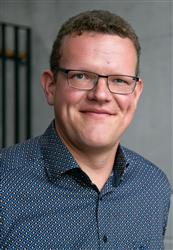ProjektBuildERS – Building European Communities' Resilience and Social Capital
Grunddaten
Akronym:
BuildERS
Titel:
Building European Communities' Resilience and Social Capital
Laufzeit:
01.05.2019 bis 30.04.2022
Abstract / Kurz- beschreibung:
The Sendai Framework for Disaster Reduction 2015-2030 points out that global evidence indicates that in all countries the exposure of people and assets to disasters has increased faster than attempts to decrease vulnerability. The Framework underlines an all-society engagement, which addresses the most vulnerable groups, whilst accounting for contextual and
cultural differences. It also calls for a more explicit focus on people, their health and livelihoods, and the local level, since individuals and local communities possess their own capabilities, networks, methods, tools and means to absorb impacts and bounce back. Thus, the ‘capital’ that is available at the root-level deserves to be recognised and incorporated in the policies and strategies for disaster risk reduction and enhancing of resilience. To improve the overall resilience of people,
communities and thereby the whole society, the BuildERS project focuses on the most vulnerable individuals, groups and
communities. Strengthening the social capital, risk awareness and preparedness of the most vulnerable segments of the
societies and communities will increase understanding on what societal resilience comprises. BuildERS will develop
knowledge and insights that will device recommendations for policies, plans, strategies, and competencies for building
partnerships, networks and trust for progressively fortifying the social capital and resilience against future threats, be they
natural or man-induced. The special focus on communities and in particular on the most vulnerable groups answers to the
so-far unfulfilled needs of these communities.BuildERS uses several research methods such as i) Stakeholder engagement
with co-design and co-creation processes, ii) Field surveying and questionnaires, iii) Comparative research, iv) Multiple case
analysis.
cultural differences. It also calls for a more explicit focus on people, their health and livelihoods, and the local level, since individuals and local communities possess their own capabilities, networks, methods, tools and means to absorb impacts and bounce back. Thus, the ‘capital’ that is available at the root-level deserves to be recognised and incorporated in the policies and strategies for disaster risk reduction and enhancing of resilience. To improve the overall resilience of people,
communities and thereby the whole society, the BuildERS project focuses on the most vulnerable individuals, groups and
communities. Strengthening the social capital, risk awareness and preparedness of the most vulnerable segments of the
societies and communities will increase understanding on what societal resilience comprises. BuildERS will develop
knowledge and insights that will device recommendations for policies, plans, strategies, and competencies for building
partnerships, networks and trust for progressively fortifying the social capital and resilience against future threats, be they
natural or man-induced. The special focus on communities and in particular on the most vulnerable groups answers to the
so-far unfulfilled needs of these communities.BuildERS uses several research methods such as i) Stakeholder engagement
with co-design and co-creation processes, ii) Field surveying and questionnaires, iii) Comparative research, iv) Multiple case
analysis.
Schlüsselwörter:
Sicherheit
security
Ethik
ethics
Resilienz
Krisenmanagement
Soziales Kapital
Vulnerabilität
Beteiligte Mitarbeiter/innen
Leiter/innen
Internationales Zentrum für Ethik in den Wissenschaften (IZEW)
Zentrale fakultätsübergreifende Einrichtungen
Zentrale fakultätsübergreifende Einrichtungen
Ansprechpartner/innen
Internationales Zentrum für Ethik in den Wissenschaften (IZEW)
Zentrale fakultätsübergreifende Einrichtungen
Zentrale fakultätsübergreifende Einrichtungen
Lokale Einrichtungen
Internationales Zentrum für Ethik in den Wissenschaften (IZEW)
Zentrale fakultätsübergreifende Einrichtungen
Universität Tübingen
Universität Tübingen
Geldgeber
Brüssel, Belgien


